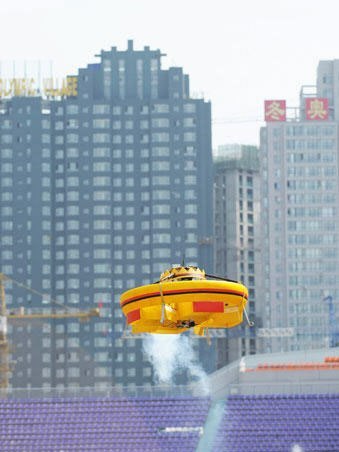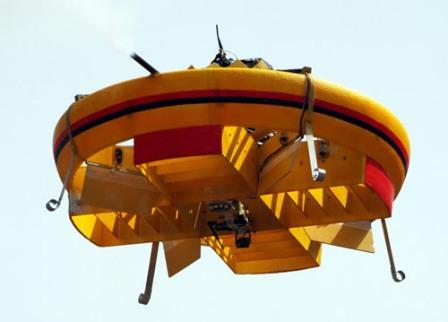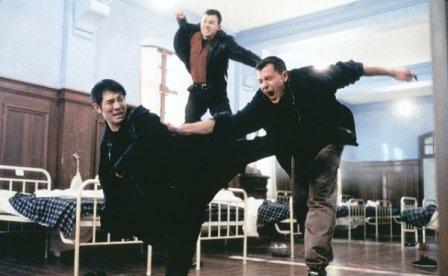When I worked at U.S. Embassy Beijing in the late 1990s, I came across, on the website of the PRC Commission for Science and Technology in the National Defense (COSTIND) news of an award to a Chinese military technician who had won a Second Class PRC science and technology prize. The serviceman won the prize for decrypting some avionics software on aircraft purchased from the Russian Federation and so unlocking higher performance of the aircraft. When I looked back a few months later, that news item had disappeared. Probably someone had decided if Russians read that piece of news they might improve the strength of their encryption.
This 2012 article from Nashe Vremya a newspaper in Rostov-on-Don, Russia.
I used the DeepL translation extension on Chrome to translate this Russian language webpage. An impressive tool!
The little Russian I learned twenty years ago I have forgotten so I did not review this translation. Please treat it with due skepticism. I found that it reads well, is plausible and interesting. Is the information very accurate? I don’t know. It does show Russian concerns about Chinese spying against them in what they now call a relationship “without limits“.
For another China spy in Russia suspected spy story see 2022: Russians Chasing Supposed Chinese Spies .
The latter half of the article referred to at the end I found on another website that also has this article — https://allinweb.ru/about-china/15557/

| Chinese military espionage against Russia | |
Over the past few years, Chinese military espionage in Russia has become a problem of truly catastrophic proportions. And even members of the FSB, usually reserved about everything related to China, are forced to speak openly about the seriousness of the problem. This is discussed in Oleg Glazunov’s book, “Chinese Intelligence,” which has just been published by Algorithm Publishing House. The Chinese have launched a “flying saucer”. The drone is 1.2 meters in diameter, can take off vertically up to a height of 1000 meters and can accelerate up to 80 km/h. The drone can be controlled remotely or “programmed” to a route. The stated purpose is geological exploration. The word “geological” is clearly unnecessary here.  During the years of China’s great friendship with the USSR, Mao Zedong asked the Chinese Ministry of State Security to hand over all Soviet agents. The result was a most idiotic decision. As a token of fraternal friendship, Moscow decided to reveal all of its agency connections to the Chinese. This was a serious mistake. Later, when the first military conflicts erupted between the two countries, the Soviet special services were left without agents. Those who were turned in were either turned over or shot by the Chinese. It is said that they were invited to the local authorities, allegedly to receive Soviet decorations for their successful work, and were arrested on the spot. At the end of the 50s, the KGB actually stopped working in China. In contrast to the Soviet security services, Chinese intelligence repeatedly attempted to recruit agents from among the Soviet specialists working in China. Attempts were made to send their agents to our territory. A former KGB officer in Primorsky Krai said that in order to penetrate into the territory of the USSR to collect information, the PRC security services sent their agents under the guise of Chinese and Korean defectors. There were thousands of them. And all had to be thoroughly checked. The defectors were filtered. Criminals, adventurers and agents of the PRC Ministry of State Security were immediately disposed of by handing them over to the Chinese side. If they were transferred for political reasons, they were not handed over to the Chinese, they were interviewed for recruitment and sent back illegally after proper training. Those who were filtered, but not suitable for further intelligence work were settled in isolated villages – mainly in Magadan or Khabarovsk Krai, and informants were brought into their environment. According to employees of the Russian security services, people were sent from China to the Union “to settle” and in a forced manner. Their task was to settle in a particular area, obtain citizenship and a Soviet passport, and wait for the “X” hour. Yuri Ufimtsev in his book “Through the Bamboo Curtain. KGB in China,” [ «Сквозь бамбуковой занавес. КГБ в Китае»] cites the story of a KGB officer who passed through more than a hundred Chinese defectors. “As for settling down. One day a captain of the Chinese MGB came over to us. He had some secret documents of interest with him. As we chatted with him, he told us literally the following: – You have yet to encounter China. He will simply have nowhere to go. Or they will take you “velvet”-wedding, settling down. The Chinese are good family men. We got the captain involved in our work. We had this conversation as far back as 1969..”   The Kiss of the Dragon… After the collapse of the USSR, the borders of the former empire opened wide, and the Chinese rushed to us in an avalanche. Yesterday’s prisoners of all the special settlements, of which there were many in the Far East and Far North-East, were freed and moved deep into Russia. By that time they all knew the Russian language, traditions, and Russian mentality, and were ready to “settle down” in Russia like no one else. This was the beginning of total Chinese espionage against Russia. And despite the fact that Russia occupies a large territory, the Chinese have managed to cover all of it with their spying activities. Today, China has the world’s largest foreign exchange reserves, according to experts, about $610 billion. This allows China to keep its defense budget high. According to U.S. estimates, China has bought eight diesel-electric submarines from Russia (by NATO classification, the Kilo type), is building its own Song type, which are effective off the coast, and also has several nuclear attack submarines. Whereas China used to ship 50-75 short-range missiles a year to its missile forces (the Chinese call them its Second Artillery), it now ships 100 missiles a year. China is the third largest ship builder in the world. Such a scale of defense construction, massive arms purchases from Russia are successfully combined with military espionage, theft of military equipment and technical documentation. Despite the proclaimed strategic partnership between the two countries, the Chinese Ministry of State Security conducts extensive intelligence work against Russia. In addition to gaining unauthorized access to advanced high-tech Russian developments, the Chinese intelligence service invites developers and specialists in military technology for work. The Chinese Ministry of State Security is particularly active in the Russian Far East. Dozens of spy cases are being conducted by counterintelligence officers against businessmen and officers of the Russian army involved in ties with the Chinese secret services. Recently an FSB officer said in an interview to the media: – “They’re getting out of hand here, they’re already spying openly and recruiting agents and stealing everything military! How? They just approach soldiers and officers and say they are ready to buy any blocks from planes, so just go and break them out. Then it all goes to China, where their specialists take it apart and see how the new equipment differs from the old. We catch them at it all the time… “Operation Vanya” …During “Operation Vanya,” Captain Nikolaev contacted the FSB in connection with an attempted recruitment. The counterintelligence service decided to “develop” Major Artyukhov. The FSB soon found out that he did not act alone. The established spy group of three persons was headed by Captain Lukin. In accordance with the developed “legend,” Nikolaev confirmed his consent to participate in the spy business, asking for increased payment for the secret information provided. Subsequently, counterintelligence officers worked on the connections of captain Lukin and came out on his assistants. Outdoor surveillance showed that Lukin, having left the unit in his car, at the agreed place moved into the car of two merchants from Vladivostok – Beloshapkin and Popov. When they got out of the car, Russian Federal Security Service (FSB — Russian counterintelligence) officers managed to record a conversation in which the merchants admitted that they were transporting military equipment samples to China. The spy group carefully concealed their interests, for example, they called the missiles “fish” and the numbers “tons. Established control over the telephone conversations of merchants with China revealed the scope of the spy business. “Fish” and “tons” constantly appeared in conversations with “Vanya”, “Alexei”, “Valya”. These were the names the Chinese customers called themselves. It turned out that they were all representatives of either military enterprises or special services. Very often the orders refused by “Vanya” were accepted by “Alexey”, and vice versa. The amounts varied from $5,000 to $100,000. In May 2002, “Vanya” asked the merchants to bring the gas turbine power plant GTE-117-1 from the Su-27. The FSB operatives immediately determined that this particular engine was in Viktor Popov’s garage in Vladivostok. Alexander Beloshapkin and Viktor Popov left for China in June 2002 and sent the cargo by rail. Apart from the power unit in the wagon there was a SK-224-05 unit designed for launching Su-27 jet engines and three military rounds with anti-tank guided missiles. But it was impossible to fulfill the order without the help of customs officers. Then the two merchants began looking for “their” man there and found him at Grodekovo customs. The customs officer agreed to let the goods through. But he soon noticed outside surveillance. Then Beloshapkin reassured them that his son worked for the customs department and had connections everywhere, even with the FSB. If they had been under surveillance, his son would have been the first to know about it. There was no way the Su-27 power units could get into China. It was necessary to detain the train by any means. And the FSB operatives set fire to the locomotive on the first leg, and the train had to be returned to the station. The cargo was detained at the Sosnovaya Pad railway crossing, and the consignors Beloshapkin and Popov were informed by phone that the arrival of the train was delayed due to a locomotive fire. When Alexander Beloshapkin and Viktor Popov returned to Russia to investigate, they were immediately taken into custody. Alexander Beloshapkin was sentenced to 11 years in a penal colony, and Captain Igor Lukin was sentenced to 10 years and stripped of his rank. Major Alexander Artyukhov was also demoted and sentenced to eight years of probation. The sixth person involved in the case, Victor Popov, did not survive the trial – in September 2002, after he was charged, he committed suicide in an investigative isolator. A total of seven people were brought to criminal responsibility – four of them were servicemen. A special ruling was issued against the Grodekovo customs officer who was directly involved in the whole affair. Nothing got to China, but the operatives continued to “develop” “Vanya. The FSB decided that he was working for the Chinese secret services and that he had to have agents in Russia. Operation “Vanya” soon developed further. Even in the course of the operational and investigative measures against Beloshapkin and Popov, it was established that they were not the only agents of “Vanya”. The FSB officers noticed that some of the projects “Vanya” implemented through the Primorsky entrepreneur Pavel Nosik. Nosik, summoned for questioning in August 2002, did not deny his acquaintance with “Vanya. But, in his words, it came out that “Vanya” is just a representative of the company on investments and trade. However, in May 2002, “Vanya” asked him to bring some spare parts for tanks from Russia. But Nosik, according to him, sort of turned him down. There were a couple of other things that raised Nosik’s doubts about “Vanya’s” solely entrepreneurial activities. Once, at Chinese customs, a driver Nosik knew was detained trying to smuggle erotic cassettes into the Celestial Empire. Erotic content is very strict in China, and the driver was at risk of big trouble. Nosik turned to “Vanya,” who, fortunately, was not far from the scene of the incident, and he arrived at the customs office and had a short conversation with its chief. After a couple of minutes the driver was released and apologized for the inconvenience caused. Nosik was also helped out by Vanya. Back in 2001, he had problems with an expired visa to leave China. Nosik called “Vanya,” and then, at his request, handed the phone to the Chinese border guards. Naturally, he did not understand the meaning of the conversation, but he was asked to pay a small fine and was released to Russia. Nosik’s testimony did not raise much doubt, although it was evident that his revelations were not easy. Nosik did not refuse to cooperate with the FSB, and in October he himself told about a very curious new meeting with “Vanya. The meeting was about business nature: Nosik supplied “Vanya” with 20 tons of flax. However, after thanking the Russian businessman for his good work, “Vanya” unexpectedly offered him to deliver from Russia about 20 articles for the Su-27, and if possible, preferably the entire aircraft. It could even be decommissioned, and for a good price – $2.5 million. One day “Vanya” suggested that Nosik meet with his director, who wanted to thank him for the flax he had supplied. They met with the director in a separate office of the restaurant. Vanya’s immediate superior spoke little Russian, but Nosik understood one word in his speech without translation – the S-300 complex. True, it was this word that “Vanya” did not translate for Nosik. In addition, the director was interested in the possibility of inviting specialists from tank repair and aircraft building plants to work in China, and also in the prospects of partial privatization of Saratov and Ufa defense industry enterprises. One more “essential detail” – the director practically did not drink, but pretended to be drunk. In the end, he even invited Nosik to his home to continue the fun with the “girls. Nosik politely declined. The next landmark meeting between Nosik and the same partners in China took place in January. This time Nosik came to the Celestial Empire to buy a batch of woodworking machines. “Vanya” helped the Russian partner get a room in an expensive hotel and paid for his stay himself. He and Nosik met twice a day for lunch and dinner, which lasted two to two and a half hours. Again “Vanya” asked Nosik to get some military information and even promised to secure their transfer with a gift in the form of a laptop with special encryption software. But Russian special services soon detained Nosik on suspicion of “double-dealing. During the investigation, the FSB quickly found his old acquaintance, Victor Smal, a serviceman living in the village of Romanovka. They did not seem to have any common interests, but Nosik contacted him regularly as soon as he returned from China. After another such return, Smal unexpectedly asked his colleague Zakharov to give him some official documents on military aviation. Zakharov promised to think about it and immediately reported the contents of the unexpected conversation to the appropriate authorities. After that, it became clear that Nosik is playing a double game, and in favor of the PRC security services. To get him red-handed, FSB operatives developed a whole cycle of operational activities. They urgently produced as a “secret” document, the “Handbook of an Air Defense Officer.” At the end of March 2003, Smal photographed this “handbook” in Zakharov’s apartment. He photographed it in Zakharov’s apartment for only $100. He photographed it with the digital Olympus device that Nosik gave him. Nosik himself had no idea about the FSB activities. He said that he sold the laptop and camera in Nakhodka to an unknown person, not realizing that operatives already know where the camera is and what they photograph. Smal brought photocopies of the “Air Defense Officer’s Handbook” to Nosik on the day of the latter’s regular departure for China. However, these 513 graphic files did not get any further than the customs. In the evening, Nosik was detained red-handed while going through customs and border control. In principle, there was an option to allow him to leave for China with the “Directory” and continue the operational game with “Vanya”. But there was a high probability that Nosik was also carrying other materials, the origin of which the operatives did not know. In the end, incidentally, this assumption was confirmed. In the electronic archives of yet another batch of spies, they found about 10,000 graphic files marked “DSP” or “Secret. Nosik received this information from other servicemen – Krohmal and Sarkisian. These cases of Chinese espionage were not the only ones. Even when the “Vanya” operation was underway, in late April 2001, former Air Force captain Alexei Vetrov was detained when attempting to cross the border with secret documents on the armament of the Su-27. Later, several more Russian citizens were detained in the Far East (Khabarovsk, in particular) while attempting to smuggle secret documents and accessories for military aviation and the Navy to China. And again it will turn out that the PRC intelligence services are particularly interested in components of the Su-27, which Russia supplies to China! In the spring of 2003 an attempt of the Chinese to take out Blueprints for the very same Su-27 was foiled in Vladivostok. And an investigation also revealed that the PRC special services are very interested in the tank repair, tank and aircraft building factories and in the possibility of privatization of those factories by China!   Why kiss a dragon? Drunk locksmiths and military secrets But why would the Chinese steal what they seem to get officially? Experts believe that, first of all, the Chinese military doubt that the components supplied from Russia are identical to those used in the actual Russian military aviation. PLA experts are convinced that Russia leaves the best parts for itself and gives them second-rate ones. Second, Chinese intelligence steals documentation, so that it can spend less on official purchases and to set up their own production of stolen goods. In Khabarovsk, for example, a Chinese man was taken off a train who was carrying secret documents that would have allowed him to set up production of military equipment hundreds of times cheaper than official purchases. There have also been curiosities: a Chinese man was caught at the Progress plant in Primorye who wanted documentation on the unique Moskit cruise missiles. It turned out that they were part of the armament of two destroyers that Russia built for China. Sometimes, China’s intelligence services simply conduct a total search for everything related to military technology, buying up absolutely everything without looking. According to the FSB, since 2001, the Chinese intelligence services have intensified their activities in the military units of Primorye Territory. The statistics is as follows: in 2002, the counterintelligence service caught a Chinese agent in Khabarovsk trying to steal secret blueprints from the aircraft factory that produced the Su-aircrafts. A year later the Federal Security Service of Russia in Primorye conducted a large-scale operation to detain a group of military pilots engaged in illegal sale of spare parts for military equipment to the Chinese. The operation involved 11 groups of counterintelligence agents, who simultaneously searched more than 10 addresses. The results of the operation were reported by Nikolai Patrushev to the president. In 2003 officers of the Federal Security Service in the Primorsk Krai prevented smuggling of precious metals and rare-earth elements, which were contained in the stuffing of guidance system blocks and other on-board and ground equipment, electronic circuits, etc. The Chinese bought this equipment in bulk and tried to export it to the PRC. To prevent this transaction officers of the FSB were introduced into the military unit under the guise of retraining officers and seconded civilian specialists. In 1991 Rosvooruzhenie sold 46 Su-27 fighters to China. Russia also hoped to make good money on spare parts for these unique aircraft. However, those calculations did not come to fruition because the Chinese special services stepped in. They thought about it and decided: why buy when you can steal, and organized large-scale operations to smuggle Su-27 parts from Russia. Over the past ten years we have sold not only fighters to China. China also bought submarines, missiles, and ships from us. Keeping all this equipment in combat condition requires a lot of spare parts. It is very expensive to buy them officially. That is why there is an illegal market for the sale of military equipment parts. The newest aviation technology is of particular and stable interest for the Chinese: our ultramodern Ka-50 and Ka-52 helicopters, as well as components for the latest generations of nuclear submarines. Moreover, the Russian special services have an assumption that those pieces of military equipment that we have not sold to China, they are trying to recreate at their enterprises. This can only explain the significant expansion of the list of sets of equipment and spare parts, as well as drawings that Chinese special services are trying to smuggle to their homeland. Most likely, all this is needed for independent production of modern Russian military equipment at Chinese defense enterprises. So the Chinese scouts scour Russian defense enterprises and buy parts and blueprints of defense technology components. According to FSB officers, an entire floor of a hostel of one of the Russian defense plants was crowded with Chinese with a distinctly military bearing, speaking excellent Russian and strenuously pretending that they do not understand anything. Officially, they were listed as seconded specialists “monitoring the fulfillment of the contract. No one doubted that they were all officers of the Chinese military intelligence service (although, apparently, there were also personnel of the Ministry of State Security). And, most likely, in their spare time from their main work they were engaged in agent approaches, hunting for blueprints and blocks. PRC intelligence had its own specifics in gathering secret information related to information extraction. Wandering around our defense plants, they looked for lubbers and offered to sell them a secret part for a bottle, or even for a whole case of vodka. If you believe the journalist and orientalist K.G. Preobrazhensky, very often this simple trick worked. Caught red-handed officers of the Chinese intelligence, if it happens, were released without publicity. A billion-dollar contract is more expensive than national security. In March 2001, at Khabarovsk airport, the FSB took a citizen of China with the secret drawings of nuclear submarines. Then suddenly the man was released with apologies, and the press was told that the exported materials were not secret. Moreover, the Chinese themselves do not risk sending stolen secret materials across the border, and mostly force Russian businessmen recruited earlier to do so. According to Russian special services, the Chinese Ministry of State Security uses the following tactics. It can be divided into two stages. Initially, members of China’s security services, disguised as businessmen, come to Russia, aimed at finding partners who do not care what they trade in. The recruited Russian merchants were given large sums of money and asked to search for and export to China, for example, rare-earth elements, which are known to be mainly used in space and defense technologies. If the contracts were executed accurately and on time, interest in such people increased. Their efforts were generously rewarded and the tasks became more difficult. From them, groups were then formed to “trade” military products by direction: Navy, Ground Forces, Aviation. Of course, the FSB interfered in this business, and after a number of successful operations the neighbors’ tactics changed. Firm Asia One such Russian merchant recently turned himself in to the FSB. He said that the Chinese had set up a special firm, Asia, in the city of Harbin, where a certain Chinese citizen, Liu Deijun, worked. He was the direct customer for the supply of military goods from Russia. Customs officials and border guards of the neighboring country are also directly involved in the well-organized and well-established technology of smuggling spare parts and equipment. During the investigation, FSB officers found out that one of the Ussuri businessmen was selling scrap metal, which he legally took from the nuclear submarine repair plant “Zvezda”. One day his partner offered to sell not just scrap metal, but military hardware. That is, to smuggle the products out of the plant’s territory, of course, not without the help of the “Zvezda” executives interested in this, and then smuggle them to China. “Entrepreneurs” first offered the Chinese two pumps and a converter from a Kalmar-type nuclear submarine. Soon a deal was struck for $90,000. And a month later the businessman, through a dummy firm, took to China under the guise of scrap metal units from a nuclear submarine and the documentation for them. The Russian businessman was paid $50,000 for this service. However, the Chinese soon refused to buy equipment from old nuclear submarines which were being scrapped and offered to deliver them units from brand new submarines. But the entrepreneur was afraid he had gone too far and confessed to the FSB. In another case, the Chinese commissioned a Russian businessman to retrieve and transport a decommissioned submarine across the border for refurbishment in China. Of course, by that they did not mean a huge submarine with a nuclear engine, but a small two-seater submarine for subversive purposes, which could be smuggled across the border in a heavy truck. But much to the dismay of the Chinese side, this task turned out to be unfulfilled. Recently, a Chinese citizen was sentenced to ten years in prison for espionage in the Irkutsk region. According to the FSB, the convicted person was a professional intelligence agent. For several years, the Chinese man lived in the Irkutsk region, where he was engaged in business. “However, at the same time he collected information about Russian missile systems and troops.” Chinese intelligence and breathing exercises After a series of spy scandals, the Chinese are changing tactics. Today they have stopped traveling to Russia and have begun to recruit unscrupulous Russian merchants on their territory. Moreover, today they do not try to export blueprints and blocks of military products abroad. Why? It is better to take Russian defense specialists to China for 2-3 days – as if on a tour. For certain consultations our scientists would get from $100 to $500 there. The most valuable sources were offered to sign a secret contract for a longer collaboration. Documents, blocks, oil An employee of a defense research institute related to high-precision weapons said that Chinese “scientists” who come to the institute on exchange directly make a “recruiting approach” to Russian scientists and offer to share information with nuclear scientists. More recently, Vladimir Shchurov, a professor at the Pacific Institute of Oceanology of the Russian Academy of Sciences, was convicted. He passed secret information about Russian military technologies to China. He was sentenced to 2 years of probation and amnestied. But nevertheless, Valentin Danilov, a scientist from Krasnoyarsk who had signed a contract with the China National Precision Machinery Import-Export Company to build a research stand and develop software for it, was not able to avoid a lengthy court investigation. At the end of November 2005, S. Tverdokhlebov, deputy general director of CNIIMASH-Export, and his assistant, A. Rozhkin, were arrested. They were involved in embezzling money as part of an organized group led by Igor Reshetin, general director of the company. S. Tverdokhlebov is accused of stealing almost 30 million rubles. I. Reshetin himself, in addition to being accused of organizing embezzlement of about 30 million rubles using fictitious companies registered on lost passports, is accused of espionage in favor of China. According to the investigation, I. Reshetin and his two accomplices – S. Tverdokhlebov and A. Rozhkin – embezzled 29 million rubles transferred by the Chinese side to fulfill the contract. The money in question was received by I. Reshetin from teams of 13 scientific institutions that cooperated with the company “TSNIIMASH-Export”. The result of the two-year investigation, which was conducted by the investigation department of the FSB of the Russian Federation, was the arrest of three persons involved in the case in their apartments on October 25, 2005. Stealing of arms and ammunition in the Far East is a common practice. The military units and defense enterprises steal everything they can get their hands on: blueprints of submarine and airplane units, various classified devices and assemblies of airplanes and missiles. Thus, one day the Arsenyev City Department of the FSB for Primorye Territory received information that a local resident, let’s call him Nikolaev, wanted to sell secret electronic control units from Su-27 airplanes. This businessman was engaged in entrepreneurial activities and had an extensive circle of acquaintances. It is clear that the Chekists had established covert surveillance over the businessman. Soon information was received that an intermediary had allegedly appeared who was willing to take on the sale of the electronic units for a certain percentage of the commission. This scenario was envisaged by the FSB, and they have already prepared the appropriate preventive actions, the mediator, “ditching” Nikolaev, fled. Then the operatives decided to conduct an appropriate conversation with Nikolaev. The meeting was arranged at the building of the Arsenyevsky Main Directorate of Internal Affairs. Nikolaev was visibly nervous, clearly guessing at the purpose of the upcoming conversation. He did not try to deny it. All the possible consequences of his actions were explained to him and he was offered to return the blocks. Nikolaev agreed. The only thing he refused to give the supplier of the block. But Nikolaev did not take into account one thing: these electronic control units are strictly accounted for and it was not too difficult to determine where they were stolen from. Their last location was a military unit in Khabarovsk Krai. China is actively interested in oil. The ambition of Chinese oilmen manifested itself in all its glory at the auction of Slavneft two years ago, when the Chinese state company China National Petroleum Corporation (CNPC) competed with structures close to Sibneft to try to gain control over the Russian company. The Chinese oil company CNPC is negotiating to buy the Canadian company PetroKazakhstan, which operates in the Kazakh sector of the Caspian Sea. Breathe deep, you’re excited Recently, the activities of the Chinese secret services in Russia have been linked to attempts to discredit the Falun Gong movement in Russia. Through official and unofficial channels, through the media and in every way, the Chinese authorities have attempted to impose false information about Falun Gong to influence public opinion. In doing so, they use all kinds of methods, including illegal ones: direct and indirect pressure on local authorities, organizations and just individuals, creating obstacles to the legal activities and performances of Russian citizens who practice Falun Gong. “Falun Gong is an organization founded by Li Hongzhi, a Chinese resident of the United States. At the beginning it (the organization) enticed people to practice breathing exercises qigong, which has been practiced in China for several thousand years. Li Hongzhi, using terms and techniques borrowed from qigong, created the pseudo-theory of the “great law of Falun”. He argues much about “truth, goodness, and patience,” declares that he knows the “radical great law of the cosmos,” heralds the “explosion of the globe,” and the “coming end of the world.” Li Hongzhi declared that only he could save humanity. The purpose of this set of mysticism and “philosophy” is quite clear: to create confusion in people’s minds, and then to “spiritually” manipulate his followers to become his obedient tool. Since 1996, Falun Gong followers have organized several hundred illegal attacks on educational institutions, press and publishing houses, and government offices. Disregarding the law, Falun Gong does not stop at blackmail to avoid criticism. Li Hongzhi organizes large-scale illegal gatherings and actions, disrupting public order and interfering with the work of government institutions. Remember his inspired rally of over 10,000 supporters around the Zhongnanhai Government Complex in Beijing in 1999, which was a vivid demonstration of his political ambitions. When the Chinese government decisively and firmly broke the illegal siege of the Zhongnanhai complex, not only did the core of the organization not cease its activities, but, on the contrary, it intensified preparations for new actions. Li Hongzhi set up his own radio station and television station, joined the Internet, published literature, and actively published in the foreign media. His activities received massive support and economic assistance from a number of countries and organizations. Chinese intelligence officials openly visit Falun Gong training centers in order to identify Chinese citizens in order to extradite them back to China and subject them to cruel and illegal punishments there. This is also confirmed by attempts by Chinese agents, under the guise of supposedly “old Chinese students,” to make contact with Russian Falun Gong practitioners. The purpose of these contacts is to gather information about Falun Gong in Russia, infiltrate, control the movement from within and gather compromising information about it, sometimes using the most impure methods. Velvet Creep Recall the words of the Chinese renegade captain that Russia can be taken “velvet” – by marrying and settling. Today Russia is threatened by “demographic expansion. The process of “Chineseization” of the Russian Far East is in full swing, if not completed. According to Lieutenant General A. Golbach, commander of the Far Eastern Frontier Sector: “The PRC has developed a state program for settling in the Far East; Chinese government services not only issue visas to its citizens, but also help them legalize themselves in Russia, inform them of addresses where they can settle in Khabarovsk, Vladivostok, and Blagoveshensk, and give them instructions on how to fit into Russian life more quickly.” Analysts at the Russian Center for Strategic Development conclude that “the large-scale penetration of Chinese immigrants into the Russian Far East has become a critical political, socio-economic and international legal problem,” since “according to information from a number of local regional newspapers, the number of Chinese living there on the border with China in southern Primorsky Krai (Grodekovsky and Frontier Districts) reaches 10-15 thousand people. Hence the conclusion: “Chinese penetration into Russian territory significantly affects Russia’s national and state interests in this region”, as it leads to “the process of forming a Chinese diaspora” on the territories contested by Russia. It is not without reason that the Minister of Construction of the Russian Federation compared the situation to an occupation. An urgent geostrategic problem for China is the growing influence of American agents in Russia, because China risks being in an unfriendly environment at a time when the Chinese leadership is faced with the full growth of the strategic tasks of eliminating the American presence in the Asian region. The Chinese leaders, who plan to expand their control over Southeast Asia, Taiwan, Korea and Japan, are interested in having a strong leader in Russia who can resist American expansion. At the same time, China is not interested in restoring Russia’s military-strategic potential, as this would create difficulties in the further implementation of China’s global plans. It was not the Ukrainians who killed the microbiologists? In addition to high-precision weapons, Chinese intelligence services are also interested in biological weapons. The intelligence services of America, Great Britain and Australia are conducting an international investigation of the mysterious death of ten scientists, citizens of different countries involved in projects in the field of biological weapons. According to the London weekly newspaper Sunday Express, there were five microbiologists on board of a Siberian airline plane that took off from Israel and crashed over the Black Sea in October 2003. According to journalists of the Sunday Express, “an Israeli group of scientists were engaged in secret projects in the field of super-powerful biological weapons. The work of this group was so secret that its projects and developments were not to be published even in scientific publications, and the information about what they have managed to do, the scientists took with them to the grave.” The weekly adds that some of the research was aimed at creating a vaccine that could protect the population and the army from a biological attack. The cause of the plane’s crash was said to have been a mistaken hit by a Ukrainian missile. But there is another version of the plane crash and the death of the scientists. This version emerged after the death of the Russian scientist Vladimir Peschanik, who had moved to Britain and was working there on the creation of antibodies against biological weapons. Intelligence agencies refused to accept the official explanation of Peschanik’s death, according to which he died of a stroke in November 2001. Sunday Express says the Chinese secret service was responsible for the death of the scientists, including Vladimir Peschanik, as they failed to persuade the biologists to “share” their secret research with China. The Sunday Express quotes U.S. poison specialist Dr. Leonard Horowitz as saying that “there are several viruses that can cause strokes without leaving any signs.” According to the Sunday Express, U.S. information agencies are investigating the cause of death in December 2001 of Dr. Don Willey, a biologist who had a working relationship with Sandman. Dr. Willey was found dead in his car; the cause of death was ruled suicide. The Americans are also investigating the circumstances surrounding the deaths of two biologists who were killed recently, Dr. Robert Schwartz and Dr. Benito Ko. And in Australia they are investigating the causes of death of Dr. Seth Van Nagweijn, a scientist who was involved in the development of a new black blister virus. In December 2004, Nikolai Patrushev openly said: the intelligence services of the United States, China and North Korea are the most active in Russia. Moreover, Chinese intelligence activities took the honorable second place after those of the United States. Источник: https://allinweb.ru/about-china/15557/ Внимание! Права на публикацию материалов сайта находятся под охраной © allinweb.ru/ In his article frames from a [French-American] film about a Chinese spy “The Kiss of the Dragon” were used as illustrations. In the next issue – about how Chinese breathing exercises are used for spy purposes. “Chinese Intelligence” can be purchased at the online store “PolitknigaOlympic Excitement in Book Format In publishing house “Algorithm” the first books of the series “Chinese marathon”, prepared specially for the Summer Olympic Games in Beijing (August 2008) were published. The books will acquaint Russian readers with the history, culture and peculiarities of foreign policy of the great southern neighbor. The first book includes all the works of Lev Gumilev dedicated to China. And the second tells about the activities of modern Chinese special services on the territory of foreign countries. In recent years, many high-profile scandals covered in the world press have been associated with China. These include the unrest in Tibet and the scandalous promotion of the Olympic Flame through various countries and continents. Publishing house ALGORITHM could not remain unaffected by these events. Bookstores in Moscow, St. Petersburg and other Russian cities received the books of the “Chinese Marathon” series, introducing the Russian reader to the history, culture and peculiarities of Chinese foreign policy. Like all products of the ALGORITHM publishing house, these books are divided into two types: one of them can be called a classic edition; the other, on the contrary, has an almost scandalous character. The book “The Three Chinese Kingdoms” is made up of works by the great Russian Orientalist Lev Gumilev on the history of China. These works were published in the 50-80s of the last century. However, together they are collected for the first time. In addition, the book includes the last, unfinished work of Lev Gumilyov “Rhythms of Eurasia. According to the management of the publishing house, the collection “Three Chinese kingdoms” may eventually acquire the status of a classic edition. The book “Chinese intelligence” is a sharp and topical work of Oleg Glazunov, a specialist in the history of special services. The book is the first frank account of the mechanisms of Chinese intelligence and counterintelligence. The author describes the methods and means used by Chinese intelligence in covert operations, how assassinations, kidnappings and masterful political plays are organized, as well as the use of the most sophisticated technical devices. In Chinese Intelligence, the reader is treated to many sensational spy stories based entirely on real events. The coverage of issues that are not commonly spoken about promises the book scandalous fame. According to the promotion department of ALGORITHM Publishers, books in the “Chinese Marathon” series sell 15% more successfully on average than other books of the publisher. The books of the “Chinese Marathon” series are addressed to athletes, sports journalists, members of Olympic delegations, Russian tourists traveling to Beijing during the Olympic Games, as well as to all those who will follow the course of sports competitions on TV. In addition, the books will be of interest to those who follow political developments around the world. |





Pingback: 1970s: Chinese Infiltrators and Counterintelligence in the Soviet Far East | 高大伟 David Cowhig's Translation Blog
Pingback: 2021: Chinese Spies in Russia Steal Military secrets and Technology | 高大伟 David Cowhig's Translation Blog
Pingback: 2010: Glazunov on Chinese Spies in Russia | 高大伟 David Cowhig's Translation Blog
Pingback: 2010: Strategy and Tactics of PRC Intelligence Agencies | 高大伟 David Cowhig's Translation Blog
Pingback: 2008: Russians Chinese/Russian on Spy vs. Spy Wars, Lin Biao Crash | 高大伟 David Cowhig's Translation Blog